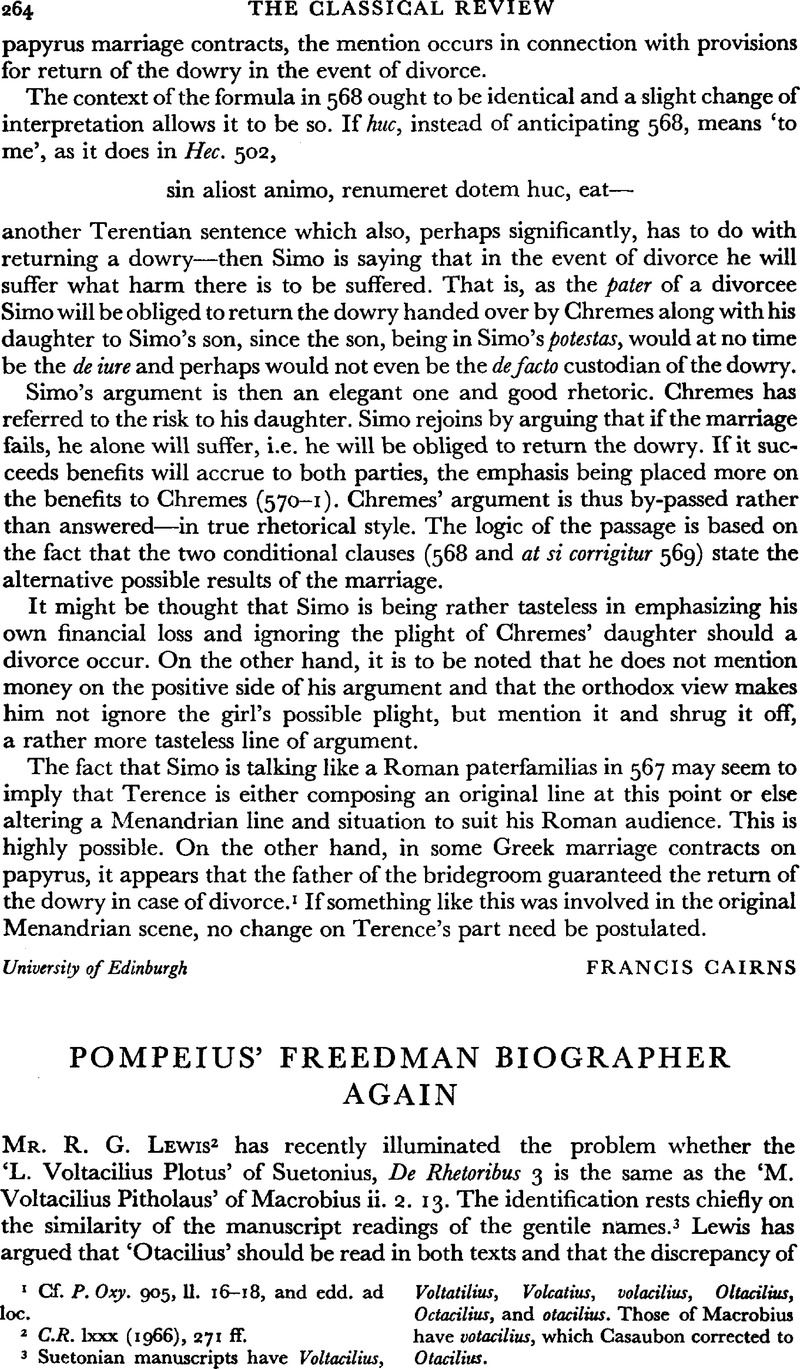No CrossRef data available.
Article contents
Pompeius' freedman biographer again
Published online by Cambridge University Press: 27 February 2009
Abstract

- Type
- Review Article
- Information
- Copyright
- Copyright © The Classical Association 1969
References
page 264 note 1 Cf. P. Oxy. 905, 11. 16–18, and edd. ad loc.
page 264 note 2 C.R. lxxx (1966), 271 ff.
page 264 note 3 Suetonian manuscripts have Voltacilius, Voltatilius, Volcatius, volacilius, Oltacilius, Octacilius, and otacilius. Those of Macrobius have votacilius, which Casaubon corrected to Otacilius.
page 265 note 1 Contra Robinson, , ed. C. Suetoni Tranquillide Gr. et Rhet. (Paris, 1925), ad loc.Google Scholar
page 265 note 2 Robinson (loc. cit.) argues wrongly on the ground that no Voltacilii Ploti are known. The patron's family would not exhibit this cognomen, nor would a freedman's son necessarily perpetuate it. Lewis's suspicion that the earlier mention by Suetonius of Plotius Gallus led Jerome to make a slip is unconvincing if the name in Jerome's copy was Pitholaus. Again, if we postulate an earlier corruption, it is hard to see how a scribe would have written the non-existent ‘Pilutus’ for a familiar Greek name.
page 265 note 3 Cf. Rudd, W. J. N., C.Q. liv (1960), 170f.Google Scholar
page 265 note 4 If the above explanation does not press a joke too far, it will be a double bluff: of course a Rhodian could use Greek, of course a Roman freedman could use Latin.
page 266 note 1 Cf. Suet. Gr. 7, 11, 18; Sen. Contr. x. 5. 22; Pliny, N.H. xxxv. 200.
page 266 note 2 Cf. Suet. Gr. 13 (Staberius Eros freed ‘propter litterarum studium’); Cic. Fam. xvi. 16. 2 (one of the motives for freeing Tiro).
page 266 note 3 For litigation on behalf of the patron cf. Cic. Scaur. 23.
page 266 note 4 Suetonius almost always identifies the patron, just as he mentions nationality if known.
page 266 note 5 It was because of this that Jerome made the error of supposing that Plotus was Pompey's freedman. For the clientela of freedmen cf. Cic. Rosc. Am. 19, Att. i. 12. 2; Suet. Gr. 12. The mistake occurs in App. B.C. iii. 94; cf. Veil. ii. 73. 3.
page 266 note 6 Suet. Gr. 12; Cic. Fam. xiii. 16; Sen. Contr. x. 5. 22.




